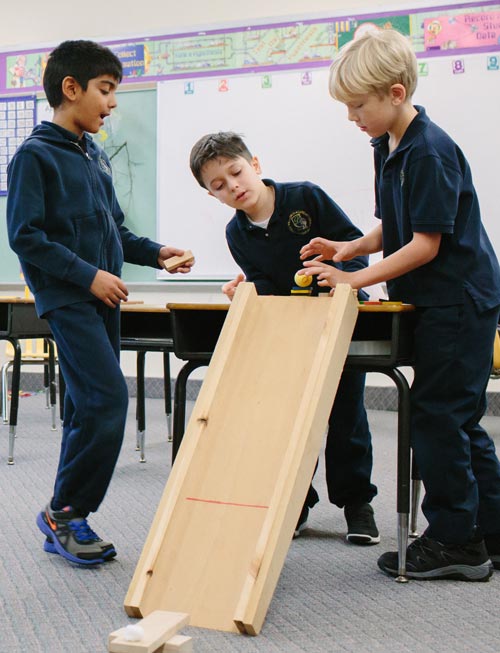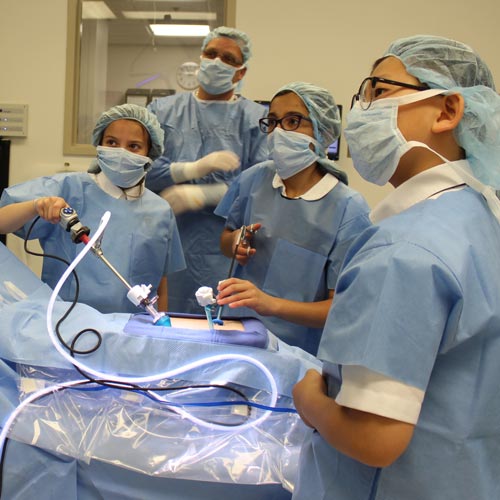Science instruction follows a hands-on interactive approach throughout all elementary levels. Students engage in a variety of complex, scientific topics derived from multiple fields of study (astronomy, biology, ecology, geology, physics, chemistry, engineering, etc.). The scientific method and engineering design loops are practiced throughout all studies in these courses, and students create their own experiments to test concepts starting at a very young age.
Students begin by exploring the fundamentals of science practice (observations, making hypotheses, conducting experiments) while also experiencing phenomena in the world around them. They then progress to learning about broader systems in the universe and systems on Earth and narrowing the scope to the individual and our environment.

Students then learn about notable contributions to science in various fields and begin to design their own experiments using the fundamentals of the scientific method. Before progressing to higher-level specified science instruction, students focus on three core areas: Earth and Space Science, Life Science, and Physical Science.
In our middle levels, students begin the study of specified sciences (biology, microbiology, chemistry, and physics) through a hands-on and interactive approach. Our students begin with courses in foundational knowledge and progress to college-level based on student goals and interests. In high school, students have opportunities to immerse themselves in extensive scientific research under a mentor.
Inquire